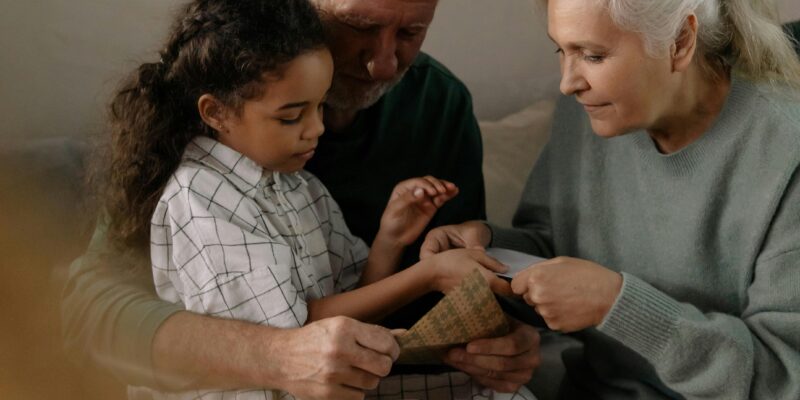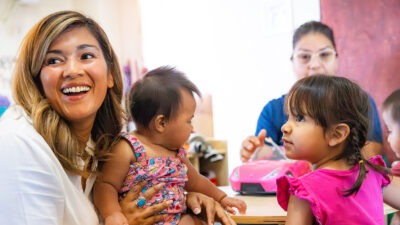Alex Haley once said, “Nobody can do for little children what grandparents do. Grandparents sort of sprinkle stardust over the lives of little children.”
Children thrive when elder figures are actively involved in their lives. Whether it is a grandparent who lives nearby, a great-aunt who calls regularly or a neighbor who helps with school pickups, these relationships bring emotional support, shared history and consistent care. For instance, research shows that when children live in grandparent-headed households, a strong bond with that elder can help reduce emotional and behavioral challenges and lower the risk of long-term negative outcomes.
In a recent Vox article, Washington-area grandmother Susan Miller shared how she and her husband spend summer months with their grandchildren cooking, crafting and putting on impromptu ballet performances. Her story reminds us that elder involvement, whether frequent or occasional, helps children feel seen, supported and valued.
When children grow up in families or communities where elders play an active role, they benefit from consistent guidance and connection. In many cultures, it is common for several generations to live together or maintain close ties. These relationships reflect shared values like mutual care, respect for age and the importance of passing down wisdom.
Some elders provide daily help while parents work. Others offer stability during times of hardship or transition, such as parental loss, illness or separation. Beyond care, grandparents and elders help pass down cultural identity. They share recipes, teach traditions and offer family stories that help children feel grounded. These moments build self-esteem and strengthen a child’s sense of belonging. When families honor the role of elders, they uplift not only children but the bonds across generations.
If you’re a grandparent or elder figure in a child’s life, your presence matters more than you may realize. Whether you see your grandchild every day or speak occasionally, here’s how you can show up as a supportive figure.
- Share stories from the past: Talk about your childhood or a favorite memory to help children feel connected to family history
- Cook a meal together: Teach a recipe and talk about where it came from and why it matters to your family
- Support learning through play: Visit a museum, watch a nature documentary or do a craft together to build curiosity
- Be available to listen: Call regularly or ask how they are feeling to offer comfort and emotional presence
- Create something together: Start a journal, grow a garden or make a scrapbook to foster collaboration and creativity
Grandparents and elders offer children something no one else can. Their presence, patience and stories give children not just memories but a strong foundation for lifelong confidence and connection.







Comments